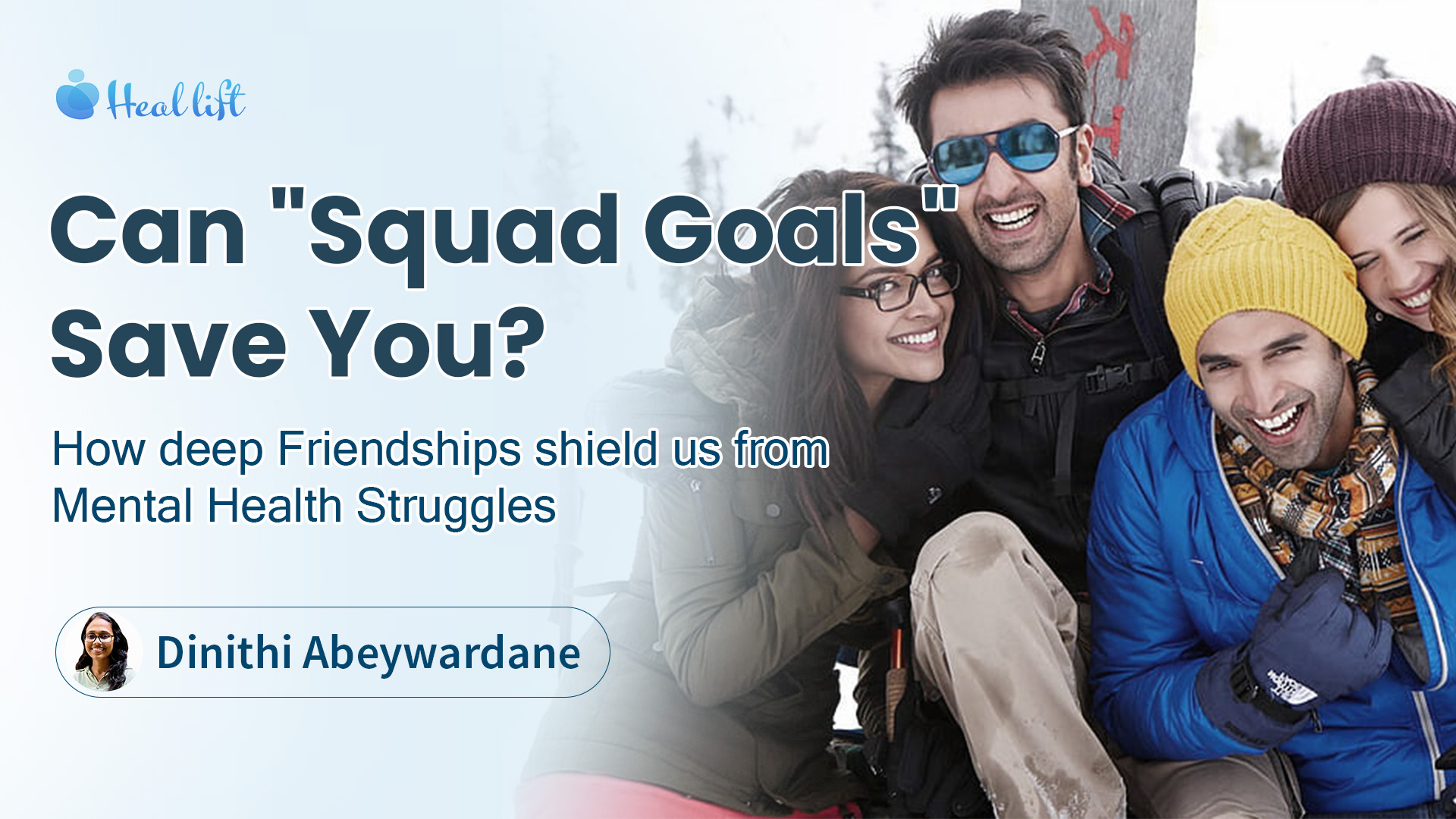Dinithi Abeywardane
-
20 Jan 2024
Can "Squad Goals" Save You? : How deep Friendships shield us from Mental Health Struggles
We admit that every challenge is a test of faith and that overcoming it will bring us the greatest reward. But isn't it blissful to have a friend with whom to share all of them? Having a squad of friends who are prepared to support us when life throws us unexpected challenges is like having an immortal team-up.
Friendship! The enchanted hyperlinks that elevate life to new heights, smooth out any difficulties, and make life much more enjoyable.
Friends turn into our own intimate cheerleaders, offering sympathetic ears, wise counsel, and reassurance that we're never alone during the emotional roller coaster. Whether it's taking random road trips, learning new hobbies, or just catching up on your favorite TV show together, friends make the best companions. Even when we aren't quite able to see our own potential, friends have this amazing knack of seeing it. They are the ones who encourage us to explore new areas, push us beyond our comfort zones, and confront our self-limiting ideas. They encourage us to develop into the greatest versions of ourselves. In a world that can at times feel like a confusing labyrinth, friendships serve as the compass that points us in the direction of resilience, happiness, and broad mental health. Friends add a unique kind of magic to our lives by doing everything from being an attentive ear to being partners in crime and encouraging personal development. Honor the significance of relationships, treasure the times when you laugh uncontrollably, and recognize the remarkable influence that friends have on our mental well-being. If you've ever shared your deepest secrets, laughed, or crying with a friend, you know just how important friendships are to overall well being and mental health.
Yes! it is true that friendships have a significant impact on your general and mental well being. While creating and maintaining these relationships could be difficult, the results are significant. Strong social connections have been shown to reduce the risk of major disorders, including high blood pressure, depression, and poor body mass index (BMI). It's important to recognize that fostering healthy relationships is just as important to your overall health as eating a balanced diet and working out on a regular basis. At the same time, it's essential to avoid unhealthy and toxic friendships.
According to Binder, Roberts, & Sutcliffe (2012), friendships have a major part in human interpersonal relationships. Having friendships is linked to psychological wellness, happiness, and a reduction in social isolation. Also offer substantial social assistance and chances for social connection. Furthermore, friendships are entirely voluntary, in contrast to other kinds of relationships like marriage and family ties. Friendships are a psychological "vaccine" against physical and mental illness, according to Sias and Bartoo (2007). They postulated that the emotional, material, and informational support that comes from close personal friendships frequently serves as a preventive measure. Emotional adjustment, higher levels of self-confidence, and sensitivity to others are predicted by close friendships. It has been discovered that those who can identify lifetime friendships are more well-adjusted than their peers who do not. Adults who report having more fulfilling and positive friendships also report feeling less hostile and anxious. It has been discovered that young adults who reported having close friendships during their preadolescence had a higher overall quality of life as well as greater satisfaction, helping hands, closeness, emotional backing, sensitiveness, trust, and shared affection. Higher levels of overall interpersonal happiness are predicted by close best friendships. The strongest friendships also seem to lessen the likelihood of peer victimization and, in the event that it does happen, to mitigate its negative consequences. These protective advantages might also include lessening the negative consequences of unsatisfactory living conditions.
But on the other hand, toxic or negative friendships can have a negative impact on mental health, even though close friendships frequently serve beneficial, safe, and healthy purposes. Be it conflict, betrayal, or unsupported behaviors, friendships can exacerbate anxiety, stress, or feelings of dissatisfaction. Therefore, it's important to value and maintain wholesome friendships while identifying and resolving any toxic dynamics that could be detrimental to mental health. Creating and sustaining deep relationships with people is essential to boosting mental health and happiness in general.
So, Let’s Always have a positive attitude. If you don't become companions with everyone you meet, that's okay too! Having friends with everyone is not necessary. It's okay to be close to a small circle of people. You can keep your everyday connections better by keeping a cheerful outlook and manner. It also increases the likelihood that you will run into more people who have similar interests to yours.
Dear pals! Whatever our journey in life or the number of candles on our cake, we can always make new friends. Accept the pleasure of forming relationships and add little laughter to your journey!


